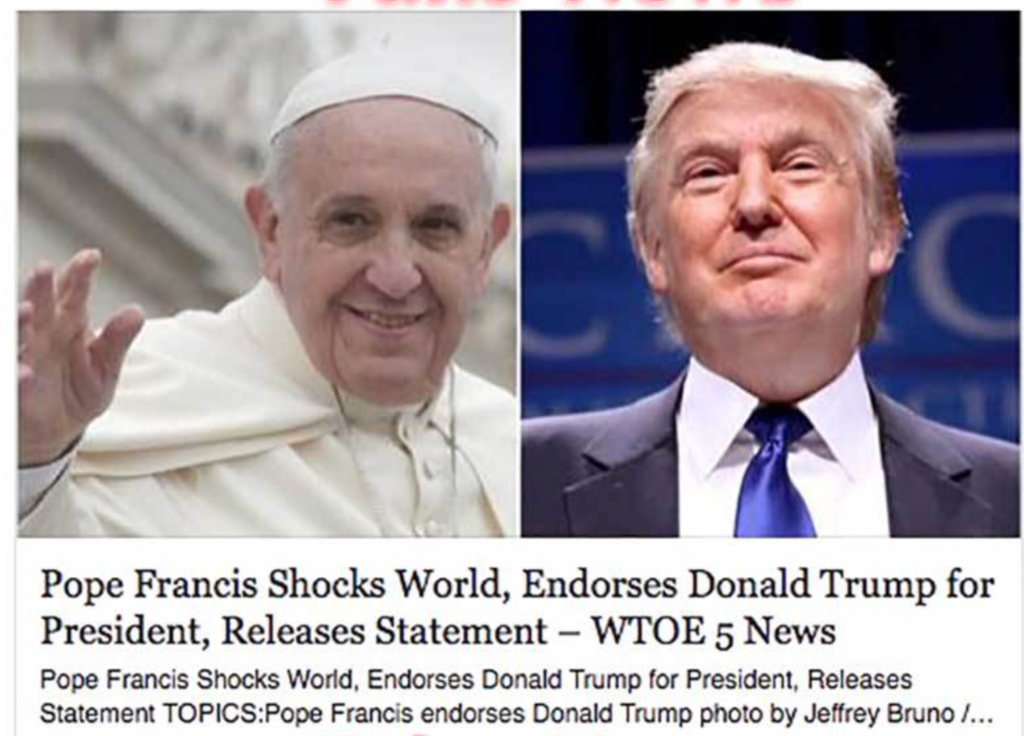An article today in the Washington Post features Paul Horner, who apparently makes a good living off of posting fake news on Facebook and other online services. Of the many posts, some appeared as news on Google, such as the Amish committing to vote for Trump. In the interview, he prided himself on the effect his fake stories had on the election:
My sites were picked up by Trump supporters all the time. I think Trump is in the White House because of me. His followers don’t fact-check anything — they’ll post everything, believe anything. His campaign manager posted my story about a protester getting paid $3,500 as fact. Like, I made that up. I posted a fake ad on Craigslist.
The irony is that Horner asserts in the interview that he “hates Trump” – he assumed, he says, that his stories would be fact-checked, but clearly that didn’t happen. Since the election there have been a number of stories on the influence of fake news on the outcome, particular on Facebook, although similar comments could be make about Twitter. A BuzzFeed News analysis found that top fake election news stories actually generated more likes and total engagement than real news stories.
It’s not just that people are misled by fake news, it’s also the case that the skepticism that fake news has engendered has led to distrust of news media in general, something that was quite apparent in the presidential election campaign, as discussed in an article in the New York Times today. As President Obama commented in a press conference in Berlin yesterday, the high volume of “active misinformation” makes it difficult to know what to believe, and, in the long run, can endanger democracy.
Many folks were shocked by the election of Donald Trump, in part because of social media reinforcing their already-held convictions that Hillary Clinton was certain to win. The “echo chamber” of the Internet seems to be particularly strong when it comes to politics, feeding user stories that online clicking and browsing habits and algorithmic analysis has indicated you want to see. A story in the Wall Street Journal, “Blue Feed, Red Feed” shows how different the information provided was for those Facebook users identified as Democrat (blue) from those profiled as Republican (red).
It seem that it’s more important than ever for us all to become informed and critical consumers of news and to try to seek out ways to break out of our personal bubbles and get different perspectives on what’s happening in our world. It’s also important to be engaged enough in what’s going on to vote in elections. A story today in the local media here in Richmond reported that, ironically, 5 of the 12 students arrested last week for blocking a highway while protesting the election of Trump had not voted.
